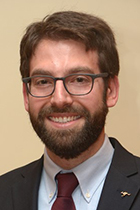
 Summary: The patent reform-hostile and software patents-friendly Patently-O has a new essay/article whose core premise is weak if not altogether flawed
Summary: The patent reform-hostile and software patents-friendly Patently-O has a new essay/article whose core premise is weak if not altogether flawed
THE BLOG known as Patently-O is influential. It's also quite popular among the patent microcosm, so ignoring it altogether would not be wise. But Patently-O is not objective; it just tries to appear so, albeit the people who run it have vested interests.
The fact that at least some computer-implemented business methods are patent eligible in the U.S. itself suggests that the field is technological, even if many methods in the field ultimately fall short on inventive merit. Eligibility at the threshold is a long way from patentability, and what Alice would view as mere computerization of a well-known business process will rarely be inventive enough to be patented as a novel, nonobvious process. But arranging and employing computers and software for practical business purposes is nonetheless a technological endeavor that brings such methods under TRIPS’ protections.
As the United States considers more changes to the availability and enjoyment of patent rights, it should end this discrimination in favor of technology-neutral practices or reforms.[xv] Otherwise, it sets a precedent of singling out disfavored technologies for disadvantageous treatment on a country-by-country basis, which could undermine the international patent law harmony that TRIPS is intended to facilitate.
The USPTO released a new data set of office action rejections, including an action-by-action breakdown of the basis for each rejection and the prior art relied upon. The first chart below shows the frequency that obviousness and anticipation rejections are found in office actions. The shift since 2009 is quite interesting — obviousness rejections are up significantly following KSR while anticipation rejections are way down.